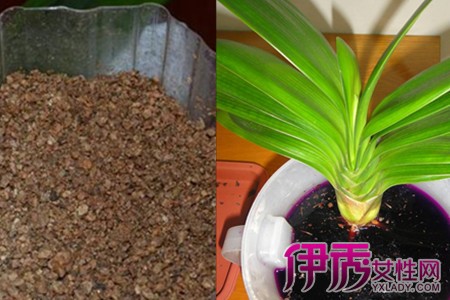Field management of cinnamon
Cinnamon is a large tree of Lauraceae, which is widely distributed in the south of China. Cinnamon flowers, leaves and fruits have a very strong flavor, from which cinnamon oil can be extracted, and cinnamon oil is the main raw material for the synthesis of cinnamic acid, which is widely used in the production of cosmetics, cigarette industry and so on. And different parts of cinnamon also have different medicinal value, now our country has part of the planting area of cinnamon, so how to manage the planting of cinnamon? Let's take a look at it with the editor.

1. Ploughing and weeding
In the cinnamon seedling stage, the growth ability is not very strong, and the threat of weeds is relatively great, so we must do a good job in ploughing and weeding. It needs to be carried out about three times a year, and the last intermediate ploughing of the year is usually carried out around November. Remove weeds in the field and cover weeds around the tree plate to reduce the rate of water evaporation and improve soil water retention. When ploughing and weeding, we should be careful not to hurt the base and root of cinnamon stem to prevent sprouting, consume too much nutrition and affect the growth of cinnamon.
2. Water and fertilizer management
Within two months after planting and afforestation, it is necessary to water and fertilize regularly to promote the growth of seedlings and improve the survival rate of seedlings. Cinnamon prefers water, so it is necessary to keep the soil moist during planting. However, it is not resistant to waterlogging, so we should also pay attention to water content. Excessive water will lead to cinnamon root rot, rotten leaves and fallen leaves, and cause diseases and insect pests such as root rot, depending on soil moisture. And every time ploughing is best carried out with topdressing, the first three years should focus on topdressing nitrogen and phosphorus fertilizer to improve the growth ability of cinnamon. In the fourth year, we began to increase the proportion of potash fertilizer and control the amount of fertilizer according to the number of plants.
3. Shaping and pruning
The tree shape of cinnamon is relatively large, in order to ensure a stable tree shape and control the tree structure, we should properly shape and prune the cinnamon tree. First, cut off the lateral branches and sprouting tillers on the ground, and then cut off the weak growth, diseases and insect pests, too long and dense and overlapping injured branches of adult trees. To improve the permeability of the forest garden and enhance the growth of cinnamon, it is necessary to start shaping and pruning about 3 years after planting. Since then, pruning every other year, according to the age of the tree to control the pruning intensity, for example, less than 4 years to retain about half the height of the crown.
4. Appropriate intercropping
Because the planting spacing of cinnamon is relatively large in the seedling stage, in order to improve the utilization rate of land resources. In the early stage of planting, intercropping can be appropriate, intercropping crops should choose high-stem crops such as pigeonpea. We should pay attention to the nature of crops, ensure that the demand for fertilizer and water of intercropping crops is small, and will not rob the growth and nutrition of cinnamon. This can not only reduce land waste, but also improve soil structure, promote the growth of cinnamon, and turn into soil crop green manure after crop maturity. If the yield is high, it can also be harvested and listed on the market, plus a planting benefit. However, when the trees are closed, intercropping should be stopped and nutrients should be concentrated on cinnamon.
The above is a brief introduction to the field management methods of cinnamon planting. The growing period of cinnamon is long, so the management of the planting process is very important. And also to do a good job in the prevention and control of diseases and insect pests, on the whole, it is quite troublesome. Therefore, if there is no management skills and enough patient friends, large-scale planting is not recommended. That's all for today's introduction. This article is for reference only. Thank you for your reading and support.
- Prev

How to deal with the rotten root of the gentleman orchid? the little trick can be solved easily.
When raising magnolia, there will be rotten roots, and if it is not dealt with in time, there is the possibility of death. The rotting roots of Cymbidium are mostly caused by excessive watering, high temperature of growth environment, too thick fertilization and so on. So how to deal with the rotten root of the gentleman orchid?
- Next

How to breed cinnamon
How to breed cinnamon
Related
- Fuxing push coffee new agricultural production and marketing class: lack of small-scale processing plants
- Jujube rice field leisure farm deep ploughing Yilan for five years to create a space for organic food and play
- Nongyu Farm-A trial of organic papaya for brave women with advanced technology
- Four points for attention in the prevention and control of diseases and insect pests of edible fungi
- How to add nutrient solution to Edible Fungi
- Is there any good way to control edible fungus mites?
- Open Inoculation Technology of Edible Fungi
- Is there any clever way to use fertilizer for edible fungus in winter?
- What agents are used to kill the pathogens of edible fungi in the mushroom shed?
- Rapid drying of Edible Fungi

